During the Christmas break I came across a very interesting blog posted by Vic Demain, Durham CCC head groundsman, on the Turfcare Blog’s cricket groundsman group Facebook page. His question was “What causes you the most frustration in your role as a groundsman”?
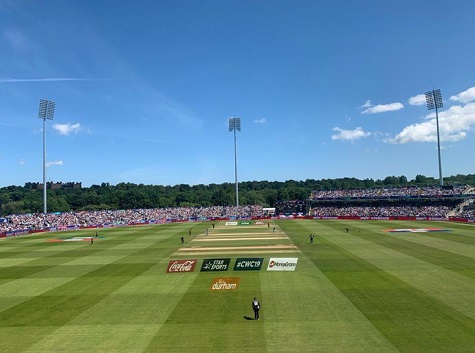
Durham CCC
With over 150 replies it was interesting to see what the top five were. To help collate the top five answers and make additional comments on the subject I enlisted the help of Brian Sandalls who runs the Turfcare Blog, Chris Johnson grassroot groundsman at Knebworth Park CC and of course Vic Demain
The original idea of the blog was to identify the most common challenges and open up the debate on ways forward - not only from those writing but also from those who reading. The blog is mostly aimed at the grassroots groundsman rather than the profession groundsman, but many of these challenges are transferable to both.
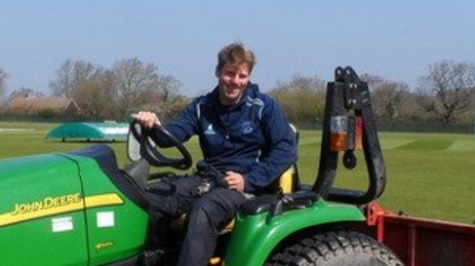
Brian Sandalls
The five top concerns for groundsman as highlighted by Brian were:
Turf Pests
The grassroots groundsman often faces the same turf pests as a professional groundsman would. These include Crane flies (daddy long legs larvae) chafer grubs, rabbits digging and chewing down grass cover.
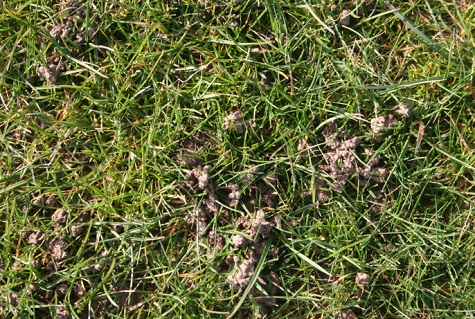
Then there are worms that cast and create levels issues. They also dilute down topdressing along with creating ideal areas for weeds, moss and weed grasses to form. All this and no chemical way of controlling them and limiting what a groundsman can do to manage culturally on a clay-based soil.
Pest issues are a major challenge going forward with warmer winters and making it especially challenging for those with limited resources to hand.
Clubs’ perspective - Most clubs’ committees don’t understand the issues with pests and how they can lower the standard of the playing surface. As groundsmen we need to communicate and seek support in managing each pest and also at times learn to live with the issues, if resources are out of reach on very large, affected areas.
Lack of Financial Support
Even professional groundsmen are often working on small budgets or have had budgets slashed. Just bear a thought for the grassroots cricket groundsman who often must patch up machinery that are at times skip-worthy. Cricket clubs don’t have the same stream of funding as winter sports clubs through the Football Foundation and this is a major challenge.
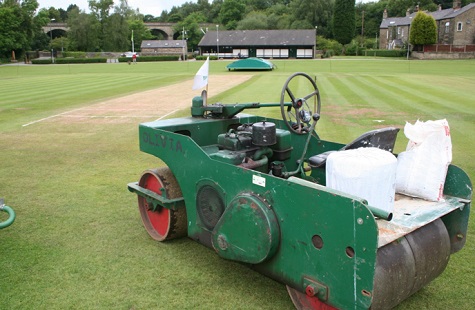
Clubs’ perspective - Communications is probably key here and also being realistic in managing not only OUR own expectations, but those of the players and committees.
Pitch damage by players
This one goes right to the heart of most groundsmen, who often are not paid or if they are, very poorly and this one hits a nerve. Batsmen marking middle stump between each ball for no real logical reason other than habit or wicketkeepers scraping the position of the stumps, again unnecessary. Add to that fielders etch their position on the square (pitches) and outfields. All this is a real irritant.
A grassroots groundsman doesn’t necessarily have the time or resources to fully restore these levels and saddled ends can form, and rain can struggle to find its way off the square as saddles can create a pond or dip in the square.
Clubs’ perspective - communication again is key here. When l have approached players on their scraping, they have often said, we don’t even think about it. I don’t think any player would do this willingly, it’s a habit and some scraping is fine, it just doesn’t need to be between every ball. It may be worth asking captains and coaches what they are trying to achieve, by constantly scraping and the negative effects this has on the square.
Lack of help with manual tasks
Club groundsmen are a dedicated bunch, and commit their social time to being down the ground, often at the expense of their own families. When a groundsman does need help, realistically or not they expect others to share their commitment level and when this isn’t met it can be very discouraging.
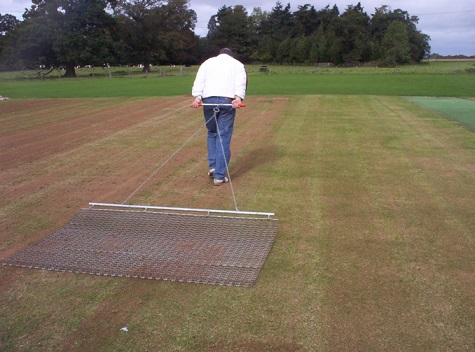
Clubs’ perspective - During lockdown volunteers seemed to come out of the woodwork, not at all clubs but it certainly was more apparent. This tells me that with more time on their hands people are more likely to dig in and this is also confirmed with the age of the majority of volunteer groundsmen.
I personally had an apology from a player last season saying he wished he could have helped me more, but family commitments prevented this. There are players who just turn up play and go home without thinking of helping. That’s not always the case, maybe we could be more proactive in asking for help from all our players and members.
Lack of respect / understanding for what groundsman do
Players complain and have unrealistic expectations of what they want, under-estimating the commitment needed to get the ground ready ahead of match day. Groundsmen are often working with cricket squares never constructed for the game of cricket or there's a lack of machinery, resources and have probably had a week full of junior fixtures. Not to mention their own life challenges to deal with.
Some players choose to moan about the surface but can't admit they mistimed a shot or lack ability or are just bad sports. Often remarks should be met with a pinch of salt if they are not done with a constructive heart.
Clubs’ perspective - Being a groundsman often means you sign up for working on your own and perhaps began with little or no knowledge, and it's only over time we grow and develop our knowledge and expertise. Most players and committees don’t see the journey and remain ignorant.
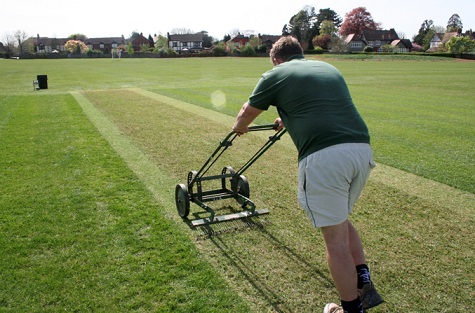
This means we need to educate clubs with as we grow, perhaps by setting up learning sessions or demonstrating through social media what's entailed. It’s a slow process and sometimes you just have to understand that they have no interest or the time to take an interest.
Groundsman by nature are passionate individuals and the problem with passion is it can easily override perspective. Even professional groundsman needs to manage expectations to those who use their surfaces. It’s so easy to look on social media or what the square looks like down the road and put unrealistic pressure on ourselves.
As a working groundsman do l struggle with the above issues and practicing what l preach, Absolutely.
Other Challenges Groundsman face
- Weather and keeping the pitches dry.
- Lone working.
- Health and safety.
- Manual nature of role, especially during renovation works.
- Abuse from youths.
- Dog walkers and dogs fouling.
- Other sports encroaching on the squares and possible damage that can occur.
Vic Demain
In response to all the comments, Vic kindly put into prospective the role of the professional groundsman.
As a professional body, cricket groundsmen take a great deal of pride in their work and look to turn out immaculately prepared playing surfaces, which are pleasing to the eye, whilst allowing players of the game to express themselves and showcase their skills.

Vic Demain and his staff at Durham CCC
There is a danger however that this pride can overtake the purpose of the job, which is to produce surfaces for sport to be played upon. There is an argument that once the umpires take control of the pitch at the toss, then the groundsman's work is complete. Once the game starts, the players will go about their business of playing to the peak of their abilities. This results in the pitch being scratched as batsmen, bowlers, wicketkeepers and fielders make their marks.
Sometimes in wet conditions, various materials like sawdust are put on wet areas to assist with player footholds. Many groundsmen don't like this as it makes a mess. It does however assist in the completion of the game.
Once the game is finished and the pitch handed back to the ground authorities, this is when the groundsman can get back out there and start to clear up the mess and repair the damage.
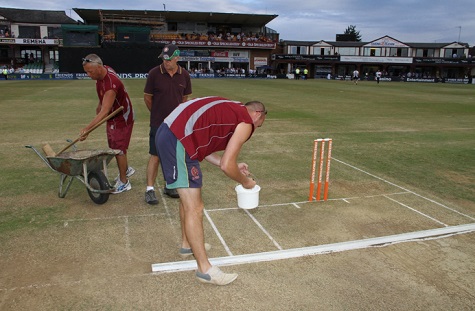
Paul Marshall and his staff at Northampton CCC
Whilst it is lovely to look at such as beautifully manicured lawns with lovely stripes, these areas should be the reserve of the headmaster's lawn and not the sporting environment.
The enjoyment for the cricket groundsman should be providing a surface where 22 players can gain a great deal of fun at whatever level they play.
There will be many challenges along the road to success, including poor weather, disease, animals, poorly maintained machinery and a lack of money. The skill of the top groundsmen however is to meet those challenges headlong and defeat them.
Laurence Gale, TurfPro:
My own response to this is that there is a tremendous difference between the role of a paid professional and the work expected and carried out by volunteer grounds staff in terms of what can be achieved.
I totally agree with Vic’s statement that the professional is paid and generally has the appropriate staff, time, resources and budgets to complete his objectives of providing the best playing surface for the players and effectively can easily overcome four of the top five concerns shown above.
- Pests
- Lack of Financial Support
- Pitch Damage by players
- Lack of help with manual tasks
However, it is a different story when we listen and hear the concerns of most part-time and volunteer groundsmen, who without doubt do not have the same resources, time, budgets and knowledge as the paid professionals.
Therefore, the impact of many of the above concerns are greater and do affect these volunteers to cope with the associated work to maintain a cricket facility.
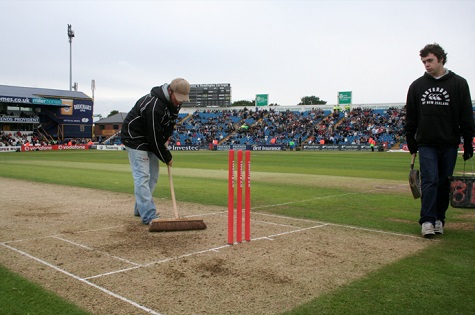
This brings me on to the biggest driver that affects all groundsmen, the ability of people to understand the role and complexities of being a groundsman.
It goes without saying they must be a Jack-of-all-trades to complete the many tasks and skills required to prepare and maintain a cricket facility and above all else have effective machinery and equipment to undertake the varied work tasks - which ironically comes back to the money the clubs have available to pay for the upkeep of their grounds.
It has been stated on more than one occasion that the costs for maintaining a typical cricket club with a 10-pitch square and catering for 2/3 senior sides and a mini junior section would be more than 25 plus hours a week in time alone for one man providing he had the right essential equipment at hand. He would also need the help of others to carry other tasks and complete the end of season renovations. You then need to cost up all the materials required - seed, loam, fertilisers, fuel and other sundries and services. All in all, a lot of time money and resources are required to maintain a cricket facility.
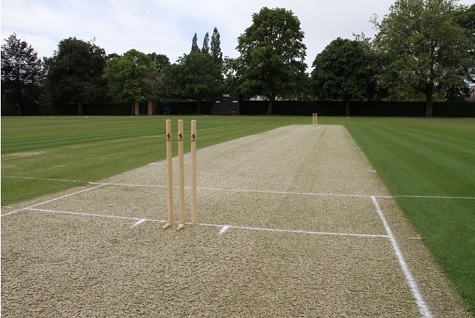
The people who run the clubs and the players should be more understanding and be more accommodating to the needs of the groundsman. Even if you had unlimited funds, the physical aspect of the work required is often very time consuming and made more difficult by the many outside influences such as the weather, size of the ground and its location and underlying soil physical conditions.
I personally would like to see the ECB take up the opportunity of producing a new updated version of the Recommended Guidelines for the construction, preparation and maintenance of cricket pitches. This is an invaluable document that would also benefit from including guideline costs for certain maintenance tasks to help clubs recognise the real costs incurred to carry out these tasks.
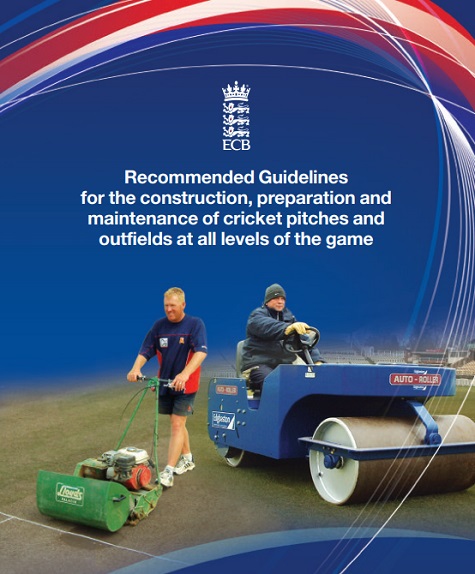
Also helpful would be a list of approved contractors who could carry out these works. Or better still put in place an ECB employed team of turf professionals to oversee and support clubs within specific counties and areas. I am sure there are plenty of ex-county and club pitch professional groundsmen who would be keen to take up this opportunity of serving the ECB in a paid role that would enhance club cricket from grassroots to county level.
The ECB already have Iain James and Andy Mackay two turf professionals in the ranks - why not add a few more to enhance the services they could provide and deliver?
Chris Johnson - Grassroots Groundsman Knebworth Park CC
My perspectives would echo much of what has already been written. Although I would say I'm fortunate to have guys around our club who are willing to help, especially with tasks such as rolling and pre and post-match. That's down to them realising I work in their very best interests, preparing good tracks (usually!) and am totally committed to getting matches and practice pitches happening. I'm also not slow in asking for help - and often they respond!
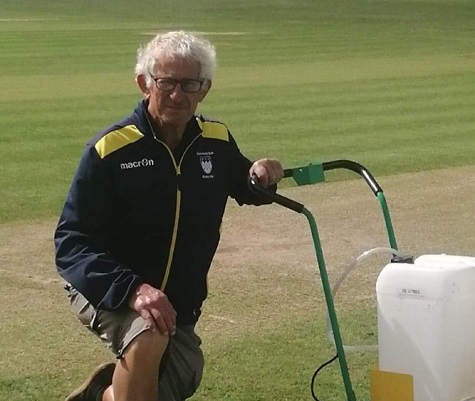
Not just at my club, but at others too there is a lack of appreciation in looking to improve the range of equipment. Equally, groundsmen must appreciate the financial constraints. Having said that, it doesn't take much for club managers to talk to the groundsman to establish what is needed and to find a route forward. Equally, I know of one club where the groundsman won't seek advice and the club is scared to rock the boat because he's done the job for so long. And others where machinery is woefully insufficient.
There are times when I might bemoan matches being played in conditions that are too wet, but I've found with a strong root fabric, the recovery process is relatively simple.
I may get annoyed by a used track being employed for practice without my permission when it was due for a match, but in reality, the harm done is minimal. You have to remember our match wickets get several uses after the first team has played on them because of a packed schedule.
Umpires do annoy me at times when they are excessively pedantic in delaying the start of a game because of ground conditions which everyone else thought were perfectly playable after rain - or this year when they wanted covid lines remarked.
Another moan is the cancellation of games after all the good work has been done because of insufficient players. One occasion this season was understandable when for the final league match, I'd applied extra effort and attention for a rip-roaring track, only for an opposition player to test positive for Covid. Well, the wicket did used subsequently, resulting in a stack of runs!
If one element really angered me it was when I left the players to remove our flat sheet covers, only for them to let the wind get hold and they got ripped.
The film Arthur's Hallowed Ground on Channel 4 is an amusing tale, but it does highlight issues that are relevant on all sides of cricket ground upkeep.
And that includes groundsmen sharing their knowledge - and taking a holiday!